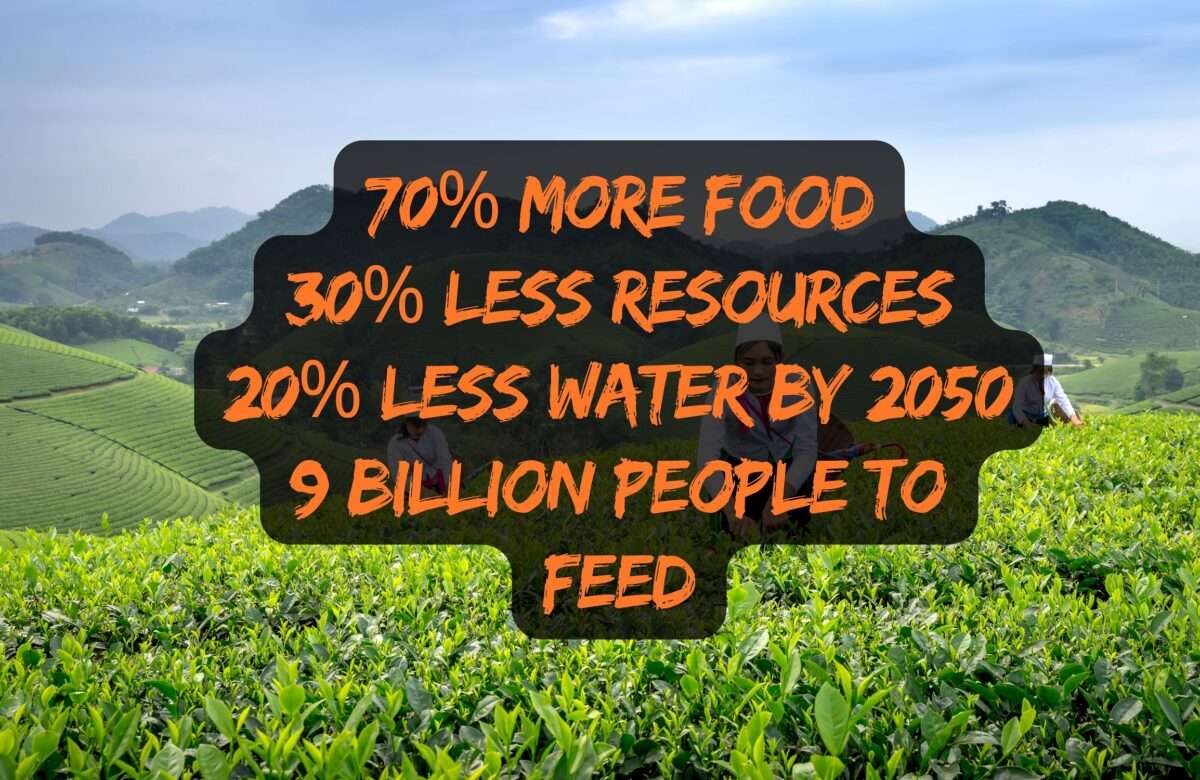- 4 August 2023
- No Comment
- 997
Empowering Women in Sustainable Agriculture and Food Leadership

Women are vital actors in the global food system, contributing to all aspects of food production, processing, distribution, and consumption.
However, they often face multiple challenges and barriers that limit their potential and undermine their rights. In this blog post, we will explore some of the ways that women can play a more active and effective role in promoting sustainable agriculture and food security, as well as some of the benefits that this can bring for themselves, their families, their communities, and the planet.
What is sustainable agriculture and food?
Sustainable agriculture and food is a way of producing and consuming food that meets the needs of the present without compromising the ability of future generations to meet their own needs. It involves balancing the environmental, social, and economic dimensions of sustainability while ensuring food security and nutrition for all.
The Food and Agriculture Organization (FAO) states that sustainable food and agriculture (SFA) support all four aspects of food security – how much food is available, how easily people can access it, how well people can use it, and how stable the food supply is. Some of the key principles of SFA include:.
Some of the key principles of SFA include:
- Increasing productivity, employment, and value addition in food systems
- Protecting and enhancing natural resources
- Improving livelihoods and fostering inclusive economic growth
- Boosting the ability of people, communities, and ecosystems to cope with challenges and changes
- Adapting governance to new challenges
Why are women important for sustainable agriculture and food?
Women are almost half of the world’s agricultural workers, but they face many barriers when it comes to owning land and animals, getting fair pay, and having a voice in decision-making bodies. These gender inequalities not only affect women’s rights and well-being, but also hamper their productivity and efficiency, resulting in lower yields, lower incomes, lower food quality, and lower food security.
Closing the gender gap in agriculture would not only empower women but also boost food production and improve livelihoods. According to FAO, if women had the same access to productive resources as men, they could increase yields on their farms by 20-30 percent, raising total agricultural output in developing countries by 2.5-4 percent. This could reduce the number of hungry people in the world by 12-17 percent.
Moreover, women have a crucial role in ensuring food security and nutrition at the household level. They are often responsible for preparing food, caring for children, the elderly, and sick family members, and managing household budgets. They also tend to spend more of their income on food and health than men do. Therefore, improving women’s access to income, education, health services, and decision-making power can have positive spillover effects on their families’ health and nutrition.
Furthermore, women have a unique knowledge and perspective on natural resource management that can contribute to enhancing environmental sustainability. They are often more aware of the local biodiversity, soil quality, water availability, climate variability, and pest control methods than men are. They also tend to adopt more sustainable practices such as agroforestry, crop rotation, intercropping, organic farming, integrated pest management, etc..
By involving women in planning and implementing SFA initiatives, their knowledge and skills can be harnessed to improve environmental outcomes.
How can women’s role in sustainable agriculture and food be promoted?
There are many ways that women’s role in SFA can be promoted at different levels. Some of the key actions include:
- Facilitating access to productive resources such as land, water, seeds, fertilizers, tools, machinery, credit, insurance, extension services, market information, etc. for women farmers .
- Connecting smallholders to markets by improving infrastructure, transportation, storage, processing, quality standards, certification, marketing, etc. for women producers .
- Encouraging diversification of production and income by supporting women’s involvement in high-value crops, livestock, aquaculture, agroforestry, agro-tourism, etc. .
- Building producers’ knowledge and developing their capacities by providing training, education, mentorship, networking, leadership development, etc. for women farmers .
- Ensuring gender equality in policies and institutions by promoting women’s participation in decision-making bodies, advocacy groups, cooperatives, associations, research organizations, etc. related to SFA .
- Raising awareness and changing attitudes by challenging stereotypes, discrimination, violence, and cultural norms that hinder women’s empowerment in SFA.
What are some examples of successful initiatives that support women in sustainable agriculture and food?
There are many examples of successful initiatives that support women in SFA around the world. Here are some of them:
The Self-Employed Women’s Association (SEWA) in India is a trade union that organizes women workers in the informal sector, including agriculture. SEWA provides its members with various services such as microfinance, insurance, health care, legal aid, education, training, etc. SEWA also promotes SFA practices such as organic farming, water harvesting, soil conservation, etc. among its members.
The WEAI is a tool that evaluates how much women are involved in, have control over, and gain from the agricultural sector. It was made by IFPRI, USAID, and OPHI. The WEAI measures how empowered, free, and involved women are in five areas: farming, owning assets, earning money, leading groups, and managing time. It also measures gender parity between women and men within households. The WEAI is used to monitor and evaluate the impact of agricultural interventions on women’s empowerment.
The African Women in Agricultural Research and Development (AWARD) is a program that supports the careers of African women scientists in agricultural research and development. AWARD provides its fellows with mentoring, training, networking, and funding opportunities to enhance their skills and leadership potential. AWARD also fosters a community of women scientists who can contribute to SFA in Africa.
Women are key actors in SFA, but they often face multiple challenges and barriers that limit their potential and undermine their rights. Promoting women’s role in SFA can have multiple benefits for themselves, their families, their communities, and the planet. There are many actions that can be taken at different levels to support women in SFA, as well as many examples of successful initiatives that can inspire and guide us. By empowering women in SFA, we can build a more sustainable and food-secure future for all.


